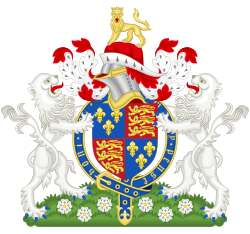| Act of Parliament | |
 | |
| Long title | A restraint of bringing corn into this realm, until it shall exceed certain prices. |
|---|---|
| Citation | 3 Edw. 4. c. 2 |
| Territorial extent | |
| Dates | |
| Royal assent | 29 April 1463 |
| Commencement | 1 August 1463 [a] |
| Expired | 1 August 1468 [b] |
| Repealed | 10 August 1872 |
| Other legislation | |
| Amended by | Continuance, etc. of Laws Act 1623 |
| Repealed by | Statute Law (Ireland) Revision Act 1872 |
| Relates to | |
Status: Repealed | |
| Text of statute as originally enacted | |
The Importation Act 1463 (3 Edw. 4. c. 2) was an act of the Parliament of England passed during the reign of Edward IV.
Contents
Merchants of the Hanseatic League resident in England were importing a large amount of corn. Parliament therefore passed the Importation Act to prohibit the importation of corn when the price of wheat at the port at which it was purchased did not exceed 6s. 8d. per quarter. This was done to relieve the condition of labourers and to raise the price of English-grown corn. [1]